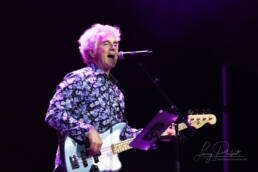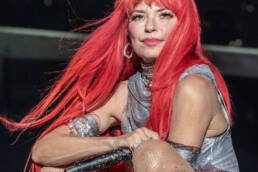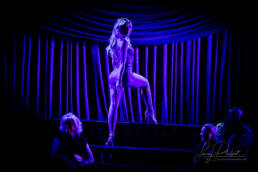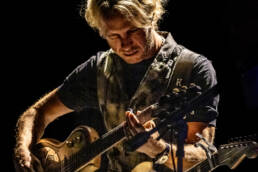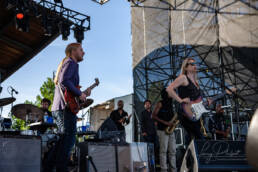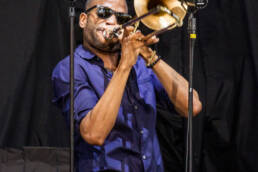Travis Tritt: The Outlaw with a Georgia Growl
Note: met Travis and Charlie Daniels one night in Indiana. Travis wouldn’t do a Meet and Greet because at another place, a female fan became a little too friendly, but he agreed to a couple of pictures with 3 of us, backstage. He’s a super nice guy.

The Fire That Lit the Fuse
Step into Marietta, Georgia, 1970s, where a lanky kid named James Travis Tritt strums a pawn-shop guitar in his bedroom. He’s 14, hair shaggy, voice already roughened by Southern sun and heartbreak. His parents split when he was a toddler, and music—Hank Jr., Waylon, Lynyrd Skynyrd—becomes his anchor. It’s a talent show at Hillcrest Baptist Church that changes everything: Travis, nervous but bold, belts “Mammas Don’t Let Your Babies Grow Up to Be Cowboys.” The crowd’s small, but their cheers echo big. That night, he knows—this isn’t just a hobby. It’s a way to rise above a fractured home, a dead-end job. For Travis, music’s not a dream; it’s a fight for something better.
The Rebel from Marietta: A Biography
Born February 9, 1963, in Marietta, Travis was the son of James, a farmer turned bus driver, and Gwen, a secretary who loved gospel. Divorce split them early—Travis bounced between homes, finding solace in records. He sang in church, taught himself guitar, and by high school, he was gigging at pizza joints. Post-graduation, he worked at a furniture store, then a heating-and-air gig, but music gnawed at him.
Life’s been a wild ride. Travis married Karen Ryon at 18 in 1982—divorced by ’84. Jodi Barnett came next in ’89, ending in ’91. Since 1997, he’s been with Theresa Nelson, a rock in his storm, raising daughter Tyler Reese and sons Tristan and Tarian. At 62, he’s a graying lion, still roaring with that Georgia grit.
The Career That Defied the Odds
Travis’s break came slow. In the ’80s, he fronted bar bands like The Outlaws (not the famous one), cutting demos on a shoestring. Warner Bros. signed him in 1989 after exec Danny Davenport heard “Country Club” and bet on his edge. The 1990 debut Country Club hit with its title track, peaking at No. 9. No fixed band—Travis is solo, backed by hired guns like guitarist Reggie Young and drummer Steve Turner on tour. Albums like It’s All About to Change (1991) and T-R-O-U-B-L-E (1992) made him a ’90s country king, blending honky-tonk with rock swagger.
He crossed lanes too. In 1992, he joined The Highwaymen—Willie Nelson, Waylon Jennings, Johnny Cash, Kris Kristofferson—for a one-off tour, a badge of outlaw cred. Solo again, Down the Road I Go (2000) and Strong Enough (2002) kept him rolling. Hollywood called: he played a vet in Blues Brothers 2000 (1998), a dad in The Long Kill (1999), and popped up in Yes, Dear and King of the Hill. Relationships? He’s pals with Charlie Daniels—shared stages, shared bottles—and clashed with Billy Ray Cyrus over “Achy Breaky Heart”’s pop leanings.
Awards are modest: two Grammys (1992’s “The Whiskey Ain’t Workin’” with Marty Stuart, 1999’s “Same Old Train”), two CMAs (Vocal Event, 1992; Horizon, 1991), and a 2017 Grand Ole Opry induction. No Hall of Fame yet, but he’s a voice of the ’90s revival.
The Hits That Define Him
- “Country Club” (1989) – Written by Catesby Jones and Dennis Lord, this debut hit No. 9, a barstool anthem.
- “Here’s a Quarter (Call Someone Who Cares)” (1991) – Travis penned this sassy kiss-off, peaking at No. 2.
- “Anymore” (1991) – Co-written with Jill Colucci, this heartbreak ballad topped at No. 1.
- “T-R-O-U-B-L-E” (1992) – Jerry Chestnut’s rowdy remake hit No. 13, pure Travis swagger.
Controversy in the Saddle
Travis thrives on friction. In 1992, he boycotted the CMA Awards after they snubbed “Anymore”—“too political,” he growled. His 2003 arrest for DUI in Georgia—caught weaving after a concert—fueled headlines; he pleaded guilty, paid up. In 2020, he slammed mask mandates at gigs, tweeting, “I sing, not cower,” alienating some fans but firing up others. His Highwaymen stint ruffled purists too—some cried “sellout” when he went pop-rock with No More Looking Over My Shoulder (1998). Travis just grinned: “I do me.”
A Night of Defiance
Let’s land on May 21, 1992, at the Georgia Theatre in Athens. Travis is hot off It’s All About to Change, 2,000 fans packed tight. He’s mid-“T-R-O-U-B-L-E” when a drunk heckler yells, “Play something country!” Travis stops, stares, then drawls, “Buddy, this is country—my kind.” He restarts, louder, and when the guy rushes the stage, Travis sidesteps, lets security haul him out, and dedicates “Here’s a Quarter” to “that jackass.” The crowd loses it—half laughing, half screaming. Later, he downs a beer onstage, saying, “Georgia don’t back down.” It’s Travis raw: unpolished, unbowed, unforgettable.
